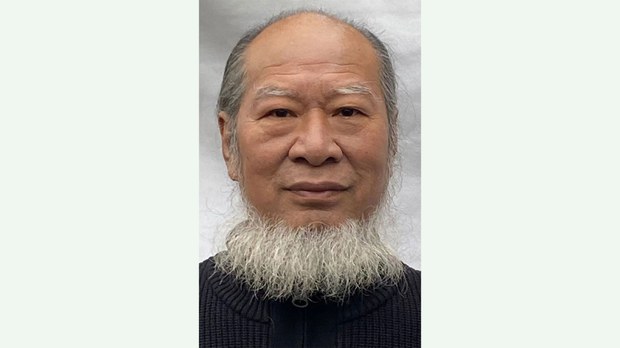Police in China’s Zhejiang slap travel ban on veteran democracy campaigner
Share

Zhu Yufu was among a group of activists who sought official permission to set up the now-banned China Democracy Party in 1998 and has served jail time for “incitement to subvert state power.”
Authorities in the eastern Chinese province of Zhejiang have slapped a travel ban on veteran democracy activist Zhu Yufu, as he prepared to travel to Japan to visit his terminally ill sister.
In his first interview with the media in five years, Zhu, 71, told Radio Free Asia that he had applied for, and gotten, a visa for Japan to visit his sister Zhu Yanmin in Sasebo, who is dying of cancer.
“My sister’s lung cancer is at an advanced stage, and she has already had surgery on both lungs,” he said. “All four of her cancer treatment plans have failed, and now her white blood cells are nearly zero, which is very dangerous.”
“That’s why I want to go and visit her now – the trip is for humanitarian reasons,” Zhu said.
Zhu, who was among a group of activists who applied for official permission to set up the now-banned China Democracy Party in 1998, has previously served time in jail for “incitement to subvert state power.”
He served a second jail term from 2012 for “subversion of state power” after he posted a political poem online titled “It’s Time,” calling on people to stand up for their freedom.
He has been under house arrest and close surveillance since his release from prison, and has spent the last two years navigating the bureaucracy necessary to get himself to Japan to visit his sister despite the restrictions of the ruling Chinese Communist Party’s zero-COVID policy, which ended last December.
In mid-March, however, he got a visit from state security police in his home in the eastern city of Hangzhou, who confiscated his passport and shattered his dream of meeting with his ailing sister one last time.
“They said if I left the country, I would become a focal point for other people,” Zhu said. “Nobody is being allowed to leave the country now.”
Zhu said he had retorted that the state security police didn’t want to lose the funding that came attached to his case under China’s draconian “stability maintenance” system, which seeks to nip potential political and social unrest in the bud by targeting activists seen as likely instigators.
“I haven’t opposed the Communist Party for more than 10 years,” Zhu said. “I haven’t given any interviews or written any articles.”
“All I have done is keep on trying to visit my sister.”
‘Top surveillance target’
Zhu said he has long been regarded as the No. 1 threat to social stability by authorities in his home province of Zhejiang.
“I’m the top surveillance target in Zhejiang,” he said. “I’m not allowed to leave Hangzhou, nor say or write anything.”
“There are several surveillance cameras downstairs in this building that were installed just to watch me,” he said. “They call me if I cross the Qiantang River [to leave town], and they come to my door every week to take photos.”
Zhu said he plans to ignore such restrictions now that he has been prevented from seeing his sister.
“I’m not going to comply from now on,” he said. “I’m going to do what I want to do.”
Fellow Hangzhou dissident Zou Wei called on the authorities to let Zhu leave for compassionate reasons.
“This is a form of political persecution,” Zou told Radio Free Asia.
“I hope the authorities will approve Zhu Yufu’s overseas trip to visit a terminally ill relative as soon as possible, on humanitarian grounds,” he said.
In 2013, Zhu was subjected to abusive treatment in jail after his relatives traveled to the United States to garner more support for his release.
Translated by Luisetta Mudie. Edited by Matt Reed.







